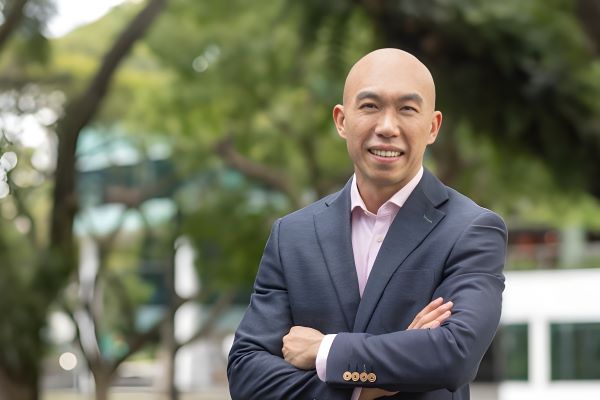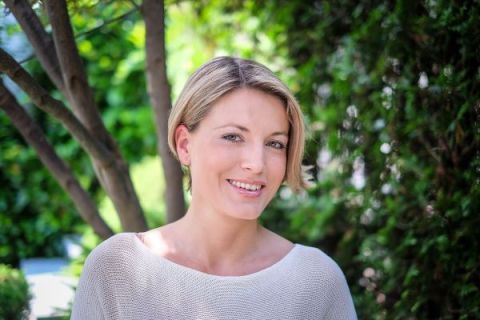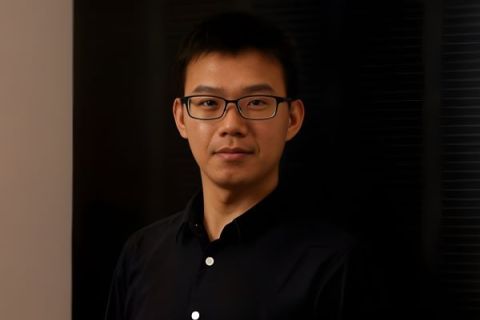
By Vince Chong
SMU Office of Research Governance & Administration – Technology has in recent decades disrupted traditional jobs through automation and digital transformation, displacing roles across industries. As various analyses and research have shown, individuals should adopt lifelong learning habits – embracing growth mindsets and continuously upskilling – to transition into emerging fields and fuel employability.
Consequently, SMU revamped its Core Curriculum in 2019 towards an interdisciplinary approach aimed precisely at helping its students tackle such shifting challenges. And now, a research team from the university is embarking on a two-year project to study the impact of the revamped system in developing lifelong learning dispositions among graduates.
The restructured Core Curriculum is crucial given the speed at which the world changes the way it operates, said SMU Assistant Professor Aidan Wong. The academic is leading the proposed study, which won the 2024 Tertiary Education Research (TRF) grant from the Singapore Ministry of Education (MOE).
For instance, he pointed out, societies have just in the past decade alone turned largely to online resources for content, and more recently towards artificial intelligence, or AI. This means equipping people – particularly students who are the future workforce – with the disposition to adapt and learn has never been more pronounced.
“[SMU’s revamped curriculum] is a clear pivot towards an interdisciplinary approach that widens students’ minds to appreciate social, political, economic, and cultural contexts, within which social enterprise and governance exist,” Professor Wong told the Office of Research Governance & Administration (ORGA).
The proposed project – The Future of Interdisciplinary: Developing Lifelong Learning Through Singapore Management University’s Core Curriculum – is co-authored by a team from the College of Integrative Studies: Assistant Professor Darlene Machell Espena, Associate Professor Daniel Seah, and Assistant Professor Jonathan David Chase.
SMU’s Core Curriculum now requires students to take numeracy courses like statistics, as well as economics and society modules that examine how the two fields interact. They also immerse themselves in other interdisciplinary pursuits through the different baskets of the Core Curriculum, including Managing, Cultures of the Modern World; Technology, Science and Society; and Modes of Thinking.
“These are disciplines that we wouldn’t conventionally imagine to be in the same basket,” Professor Wong said. The aim is therefore to nudge mindsets into unfamiliar zones – and getting comfortable with it.
“I am a proponent of the adage the more you know, the more you know you don’t know,” said the researcher, who joined SMU in 2017. He was also at one point deputy director of the Office of Core Curriculum that oversaw the implementation of the new policy.
“As a result of being comfortable with recognising that we don’t know everything, you then become confident to step into something which curiosity has driven you towards. That is where we want today’s students to end up in the long term.”
Integrating with SkillsFuture
The exploratory study by Professor Wong’s team is also “imperative” for two reasons, according to its MOE grant proposal.
Through data collection, surveys, analyses, and reports, it assesses firstly SMU’s approach to interdisciplinary education and its impact on lifelong learning. Two, it examines how it might be potentially integrated with the Singapore government’s SkillsFuture policy, the objective of which is “to empower individuals to redefine what they can achieve and take ownership of their training and development.”
Significantly, the project adds, SkillsFuture underwent a “recalibration” in 2024 to promote more targeted and sustained retraining efforts among Singaporeans, and is now a key component of the wider Forward Singapore initiative. This broader context matters to the study, it notes, as autonomous universities (AUs) like SMU “are key enablers of this refreshed social compact.”
The research also ties in with MOE’s designation of interdisciplinarity as one of its four main strategies in a post-pandemic environment. It plugs a research gap with prior studies having focused on areas such as “pre-university learning with a focus … in discrete subjects, such as art education and biomimicry.”
Further, it examines for the first time a Singapore-centric model of interdisciplinarity for national needs. Singapore, the project explains, is customarily “an importer of interdisciplinary learning,” particularly from the USA where “there is sustained interest in clarifying the content” of such learning.
Accordingly, the project notes, it “provides thought leadership on interdisciplinary education with a working blueprint” for further research in Singapore.
The fact that SMU changed its core model to broaden the learning experience makes it one of the most forward-thinking institutions of its kind globally, Professor Wong noted. After all, recent economic and social challenges have shown that it is never about any one subject matter alone.
“There was a misplaced sense of security around the singular disciplinary approach,” he mulled.
“The best solutions are those which draw in a mix [of expertise], with the reality being to get it to a mix that works for you.”
Impact and next steps
Professor Wong reckoned that the first batches of SMU graduates under its revamped Core Curriculum will start displaying lifelong learning traits as they move on to the next stage. “It is my belief that you will see it in the flow of students… in terms of the kind of versatility and adaptability that they exhibit in the workplace,” he said.
In time, he also hopes his team can find opportunities to apply their research in a nationwide landscape study across first, the AUs. This could then be extended to secondary and post-secondary levels which could include the polytechnics and the Institute of Technical Education.
Plus, he noted, the model fits snugly into how Singapore’s workforce environment has evolved to integrate continuing education and networking opportunities. In short, it is no longer true that workers might find it difficult to upgrade their skills due to traditional life changes such as demands of family life or job losses.
Public and private sector employers as well, he said, are more understanding and open to staff learning and taking courses while holding a job.
“There is so much more going on in industry. That one might get stuck into the vicissitudes of life [and hence, not seek to upgrade] is no longer a fair picture of what is happening,” he said. Such an environment, he added, fits an interdisciplinary education that nurtures a sense of lifelong learning and hence “disposes one to an adroit mind.”
“We want to see that in the flow [of graduating SMU students], and we will continue to shape that flow.”
Back to Research@SMU August 2025 Issue
See More News
Want to see more of SMU Research?
Sign up for Research@SMU e-newslettter to know more about our research and research-related events!
If you would like to remove yourself from all our mailing list, please visit https://eservices.smu.edu.sg/internet/DNC/Default.aspx

